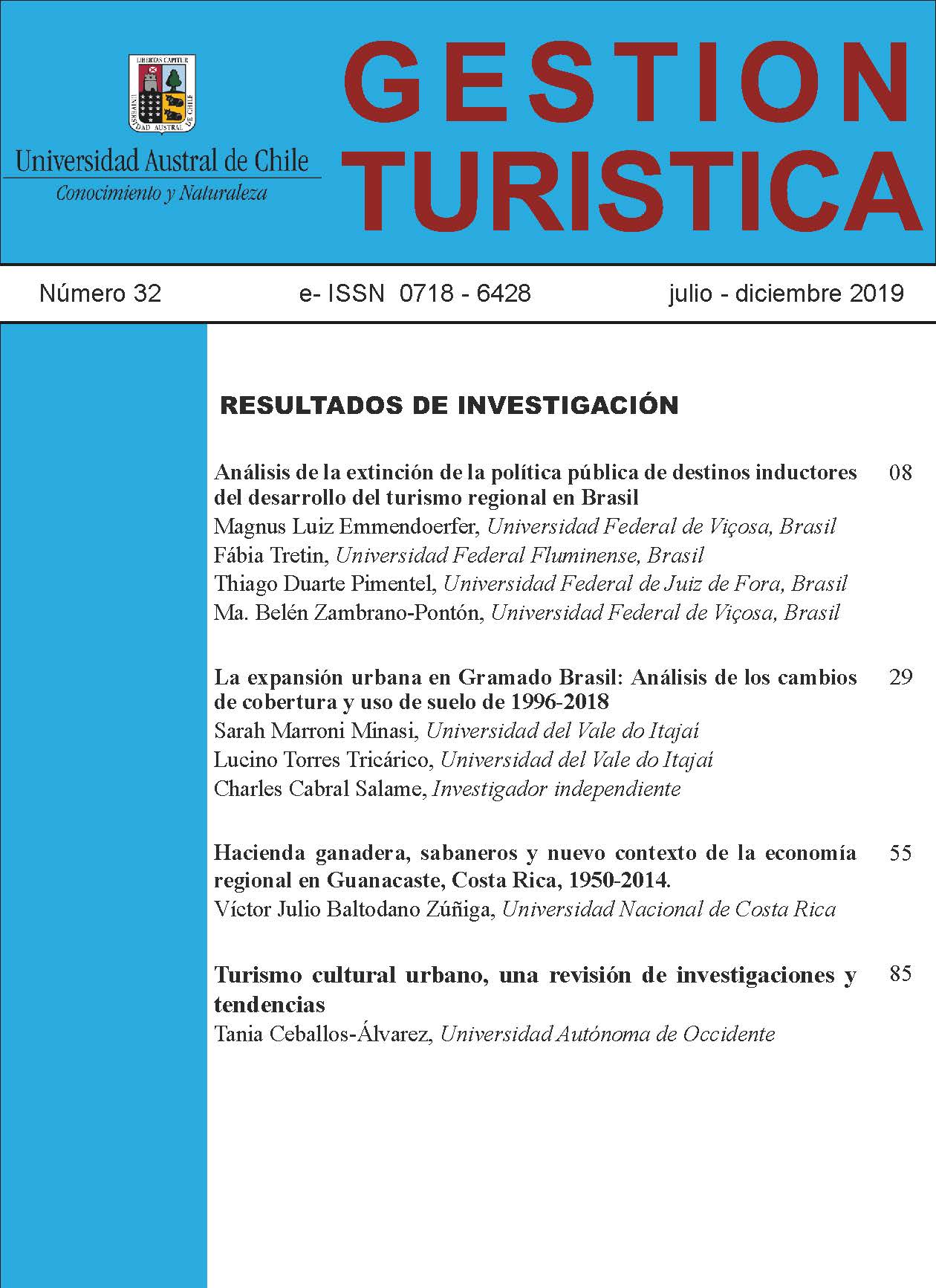PUBLIC POLICY TERMINATION ANALYSIS OF INDUCTIVE DESTINATIONS OF THE DEVELOPMENT TOURISM REGIONAL IN BRAZIL
Main Article Content
Abstract
This paper researched the ending of governmental Project called Inductive Destinations of the Development Tourism Regional (DIDTR) in Brazil, the main national public policy on tourism (2008-2015). The theoretical framework was based on the Tourism Public Policies and the phase of ending of the Political Cycle. For this study, it was used a qualitative empirical approach, the tourist destinations of Minas Gerais. Additionality, the case study method was applied (DIDTR Project) in this study using interviews with the principal stakeholders of the tourism sector. The main results of the study showed that a policy public can finalize with reasons until now no studied by the Scientific Community. For this specific case, it was shown two moments, the first for internal purposes in 2011, that had as the main cause, the budgetary cuts as a result of the corruption investigations, specifically the misappropriation of money from parliamentary amendments which involved to Ministry of Tourism (MTur). The second moment for external purposes in 2015, with the final of the most emblematic action, the issuance of the competitiveness indices reports. Finally, none of the moments of the Project termination was officially communicated by the MTur to the touristic destinations involved.

